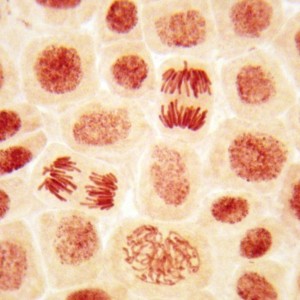 A new study led by researchers at the University of Manchester in the United Kingdom revealed that the glucocorticoid receptor in cells plays an additional role in coordinating cell division and is linked to cancer suppression. The study was published in the journal Proceedings of the National Academy of Sciences (PNAS) and is entitled “Glucocorticoid receptor regulates accurate chromosome segregation and is associated with malignancy.”
A new study led by researchers at the University of Manchester in the United Kingdom revealed that the glucocorticoid receptor in cells plays an additional role in coordinating cell division and is linked to cancer suppression. The study was published in the journal Proceedings of the National Academy of Sciences (PNAS) and is entitled “Glucocorticoid receptor regulates accurate chromosome segregation and is associated with malignancy.”
The glucocorticoid receptor (GR) is known to play a role in cell development, proliferation, metabolism and immune response. It is the receptor to which cortisol and other glucocorticoids bind to and is expressed in almost every cell in the body. The mechanism of action of several drugs is based on GR, such as prednisolone, a glucocorticoid widely used to treat several inflammatory and auto-immune disorders like asthma, rheumatoid arthritis and multiple sclerosis.
Researchers have now found a new role for GR in chromosome segregation, a step in cell division or reproduction in which chromosomes pair off with their similar homologous chromosome. Researchers found that cell division was disrupted in cells where GR was absent and that these cells had increased DNA damage and errors in their chromosomes, a known cancer feature. Mice models where GR expression was impaired exhibited an increase in tumors incidence over time. Tumor analysis revealed that they had even less GR in comparison with the surrounding healthy tissue.
“Cancer is caused by cell division going wrong, but no one has previously looked at the role GR has to play in this process. It’s now clear that it is vital.” said the study’s senior author Dr. David Ray in a news release.
The research team also found a reduced GR expression in several human cancers including prostate cancer, but also lung, colon, breast and liver cancers. Researchers propose that there is a link between GR expression and malignant progression and that GR may act as a tumor suppressor gene.
“We do need to add more research to these findings, but this new mechanism adds a lot more to our knowledge of how cancers form, and with that knowledge we’re much better equipped to develop new treatments which could eventually be used in humans,” concluded the study’s lead author Dr. Laura Matthews.

